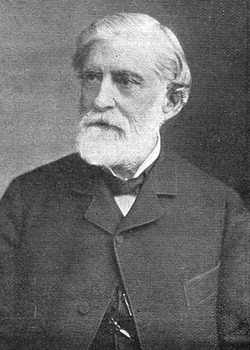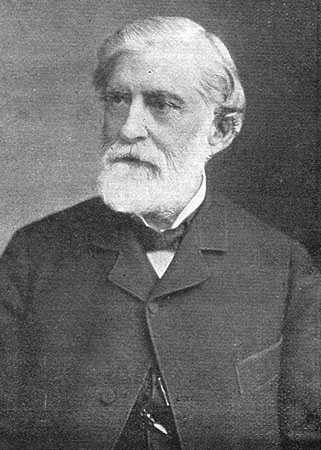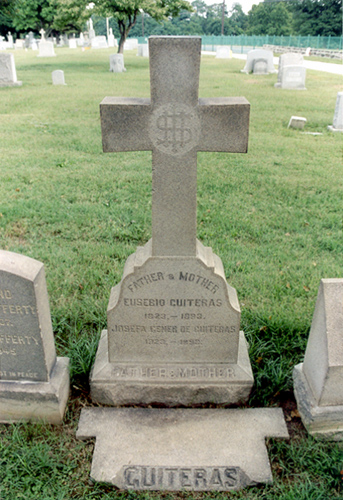Educator, Author. He was a Cuban-born educator and intellectual who founded the Lyceum Matanza, the principal literary center of that Cuban city. His books include "Lectura Graduada," "Gramma of Religion," "Un Invierno en New York" or "A Winter in New York" in 1861, and "Romance Cubano" in 1861, which received an award in the First Floral Games of Matanzas. On July 3, 1842, he and his brother Antonio embarked on a three-year journey from Cuba first to the United States, then Canada, Spain, France, Italy, Greece, the Holy Lands, and Egypt. He wrote three diaries about the journey, which were published in Spain in 2010 as "Cuban Liberal Thought Through the Travel Diary of Eusebio Guiteras Font." The journal has been published digitally by the University of Florida. After returning to Cuba in 1850, he and his brother Antonio founded the La Empresa College in Matanzas in 1850. He translated many classics into Spanish for the students. He was arrested for being a conspirator in the Cuban independence movement and left for political exile in Boston on May 28, 1853. The family moved to Philadelphia the following year. They returned to Matanzas in 1858 after a general amnesty, and he resumed being headmaster of La Empresa College for the next decade. Addressing Cuban culture and politics, he was published in newspapers such as "La Aurora, Album de lo bueno y lo bello" in 1860 and "Revista Habanera" in 1861 and magazines such as "Verdad Católica" and "Revista de la Habana". Starting in 1856, he published four reading textbooks, which were read throughout the island. The "Fourth Reading Book" was banned in 1868 by the Spanish authorities as it dealt with the independence of Cuba. The Cuban Ten Years' War for Independence from Spain forced the Guiteras family into exile again to the United States. After the exile, the school was closed for political reasons in 1869 by the Spanish colonial government. The Guiteras family resided in Philadelphia, where he and his brothers Antonio, Pedro Jose and Ramon, actively participated in the Cuban separatist cause, which ended in the Spanish-American War. Eusebio wrote school books until his death in Philadelphia in 1893. His son Juan was a physician in the United States Navy during the Spanish-American War and gained recognition for his research during the Yellow Fever epidemic, becoming the "Father of Cuban Parasitology Medicine."
Educator, Author. He was a Cuban-born educator and intellectual who founded the Lyceum Matanza, the principal literary center of that Cuban city. His books include "Lectura Graduada," "Gramma of Religion," "Un Invierno en New York" or "A Winter in New York" in 1861, and "Romance Cubano" in 1861, which received an award in the First Floral Games of Matanzas. On July 3, 1842, he and his brother Antonio embarked on a three-year journey from Cuba first to the United States, then Canada, Spain, France, Italy, Greece, the Holy Lands, and Egypt. He wrote three diaries about the journey, which were published in Spain in 2010 as "Cuban Liberal Thought Through the Travel Diary of Eusebio Guiteras Font." The journal has been published digitally by the University of Florida. After returning to Cuba in 1850, he and his brother Antonio founded the La Empresa College in Matanzas in 1850. He translated many classics into Spanish for the students. He was arrested for being a conspirator in the Cuban independence movement and left for political exile in Boston on May 28, 1853. The family moved to Philadelphia the following year. They returned to Matanzas in 1858 after a general amnesty, and he resumed being headmaster of La Empresa College for the next decade. Addressing Cuban culture and politics, he was published in newspapers such as "La Aurora, Album de lo bueno y lo bello" in 1860 and "Revista Habanera" in 1861 and magazines such as "Verdad Católica" and "Revista de la Habana". Starting in 1856, he published four reading textbooks, which were read throughout the island. The "Fourth Reading Book" was banned in 1868 by the Spanish authorities as it dealt with the independence of Cuba. The Cuban Ten Years' War for Independence from Spain forced the Guiteras family into exile again to the United States. After the exile, the school was closed for political reasons in 1869 by the Spanish colonial government. The Guiteras family resided in Philadelphia, where he and his brothers Antonio, Pedro Jose and Ramon, actively participated in the Cuban separatist cause, which ended in the Spanish-American War. Eusebio wrote school books until his death in Philadelphia in 1893. His son Juan was a physician in the United States Navy during the Spanish-American War and gained recognition for his research during the Yellow Fever epidemic, becoming the "Father of Cuban Parasitology Medicine."
Bio by: Linda Davis
Family Members
Advertisement
See more Guiteras memorials in:
Records on Ancestry
Advertisement







